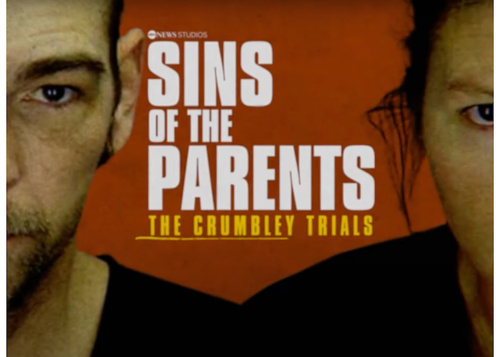
Lara Bazelon of Slate magazine includes Wayne County Prosecutor Kym Worthy among targets in a roundup headlined: "The Innocence Deniers: When convictions are clearly wrong, these prosecutors don’t just hinder justice—they actively work against it."
Worthy has a rep as a crusader against crime in a city with pervasive crime. Who doesn't love that? She's also aggressively pushed for funding to process rape kits and isn't afraid to charge cops criminally. More kudos.
But some complain that she, like some other counterparts elsewhere, fights too hard against reversing convictions when the evidence strongly suggests innocence.
"Many prosecutors accept this responsibility and, when proven wrong, ask the judge to dismiss a case or settle by way of a plea bargain," the author writes. "But too many do not. Indeed, there is a class of prosecutors that might fairly be called innocence deniers."
"These prosecutors do not 'do justice' as the Supreme Court defines it. Instead, they delay justice and in some cases actively work against it. When a prisoner is exonerated by a lower court, these prosecutors double and triple down, filing appeal after appeal."
Devontae Sanford
Devontae Sanford
In Worthy's case, the author cites a glaring example of denying justice: Davontae Sanford, who was 14 in 2008 when he confessed to murdering four people in an east side Detroit drug house. Bazelon writes:
Left alone with detectives in a late-night interrogation, Sanford says he broke down after being told he could go home if he gave them “something.” On the advice of a lawyer whose license was later suspended for misconduct, Sanders pleaded guilty in the middle of his March 2008 trial and received a sentence of 39 to 92 years in prison.
Sixteen days after he was sentenced, a hit man named Vincent Smothers told the police he had carried out 12 contract killings, including the four Sanford had pleaded guilty to committing.
Smothers explained that he'd worked with an accomplice, Ernest Davis, and he provided a wealth of corroborating details to back up his account. Smothers told police where they could find one of the weapons used in the murders; the gun was recovered and ballistics matched it to the crime scene. He also told the police he had used a different gun in several of the other murders, which ballistics tests confirmed. Once Smothers’ confession was corroborated, it was clear Sanford was innocent. Smothers made this point explicitly in an 2015 affidavit, emphasizing that Sanford hadn’t been involved in the crimes "in any way."
State Police Step In
Smothers and Davis weren't charged with the murders.
In 2015, the Michigan State Police began to re-investigate the case, and a year later issued a 117-page report detailing compelling evidence that Smothers and Davis were guilty; that Sanford was innocent; and that Detroit’s then-deputy police chief, James Tolbert, lied to convict Sanford.
Nine years into his sentence, Worthy finally agreed to his release—but only because of Tobert's misconduct.
Worthy ignored the state police's recommendation to bring perjury charges against Tolbert and murder charges against Smothers and Davis. She also insisted Sanford was still guilty, pointing to his confession.
Richard Wershe Jr.
Slate doesn't mention Worthy's almost irrational crusade to keep Richard Wershe Jr. ("White Boy Rick)" behind bars for life.
He was sentenced to life in prison as a teenager in the late 1980s for cocaine trafficking. He was guilty and deserved some time, no question. But he also cooperated with law enforcement authorities on major cases both before he went to prison and while he was behind bars.
For perspective: Salvatore "Sammy the Bull" Gravano, underboss of the Gambino crime family in New York, confessed to a role in 19 murders and was sentenced to five years in prison in exchange for his cooperation against the mob.

Richard Wershe Jr. (Florida Department of Corrections photo)
Worthy opposed Wershe's parole at every turn, portraying him as a danger to society and falsely making him out to be a dangerous drug lord like the late Pablo Escobar. He was hardly that.
FBI agents and federal prosecutors, who were familiar with his extremely helpful cooperation in big cases, pushed for his parole, but to no avail.
Finally, last year, Worthy agreed not to oppose his parole. In July, after nearly 30 years behind bars, Michigan's Parole Board voted to release him from prison.
Problem is, Wershe had another conviction in Florida, where he was charged as part of a car theft ring while living under the witness protection program.
Worthy made it clear to Florida authorities, according to reports, that they should come down hard on Wershe, who got five years.
After his release from Michigan, Wershe was taken to Florida where is serving out that term, minus good time and possibly other considerations. Worthy had no interest in intervening there and helping right an injustice she perpetuated for many years here in Detroit.
The good news is that Worthy is launching a Conviction Integrity Unit, headed by Valerie R. Newman, to review possible wrongful convictions. Newman was recruited from the State Appellate Defender Office, where she spent 26 years -- her full legal career -- representing indigent defendants in criminal cases. Her LinkedIn page describes a "passion for a fair and just criminal justice system."
That move might help Worthy get off the innocence deniers list. It's not a good place to be.


 by
by









